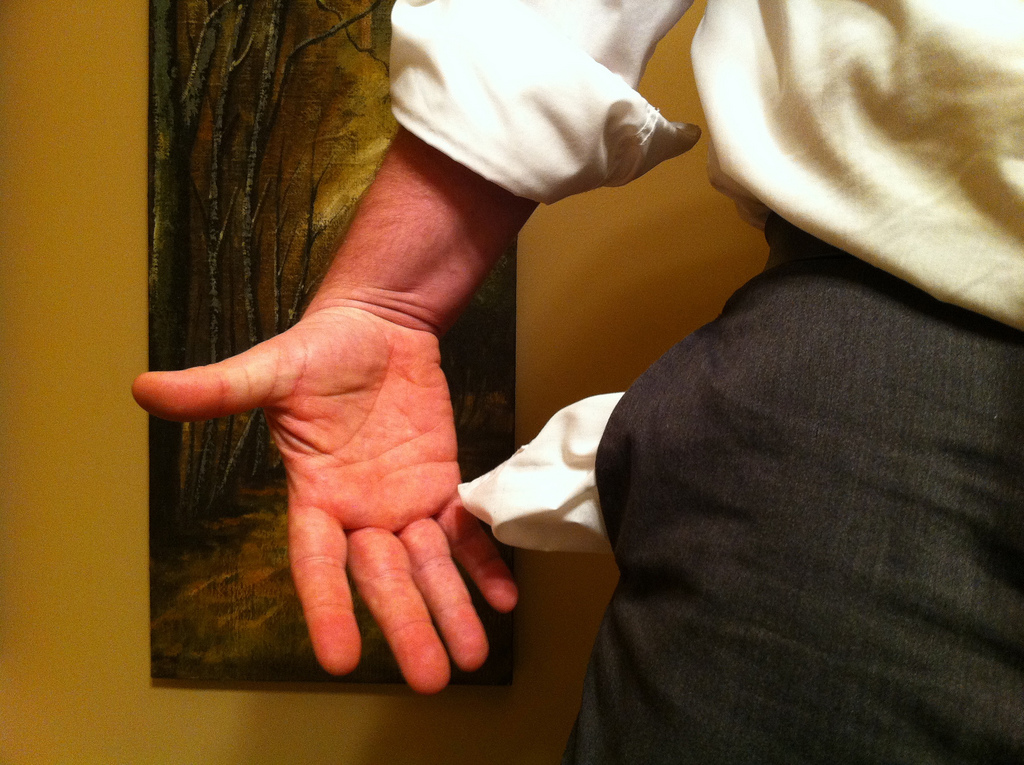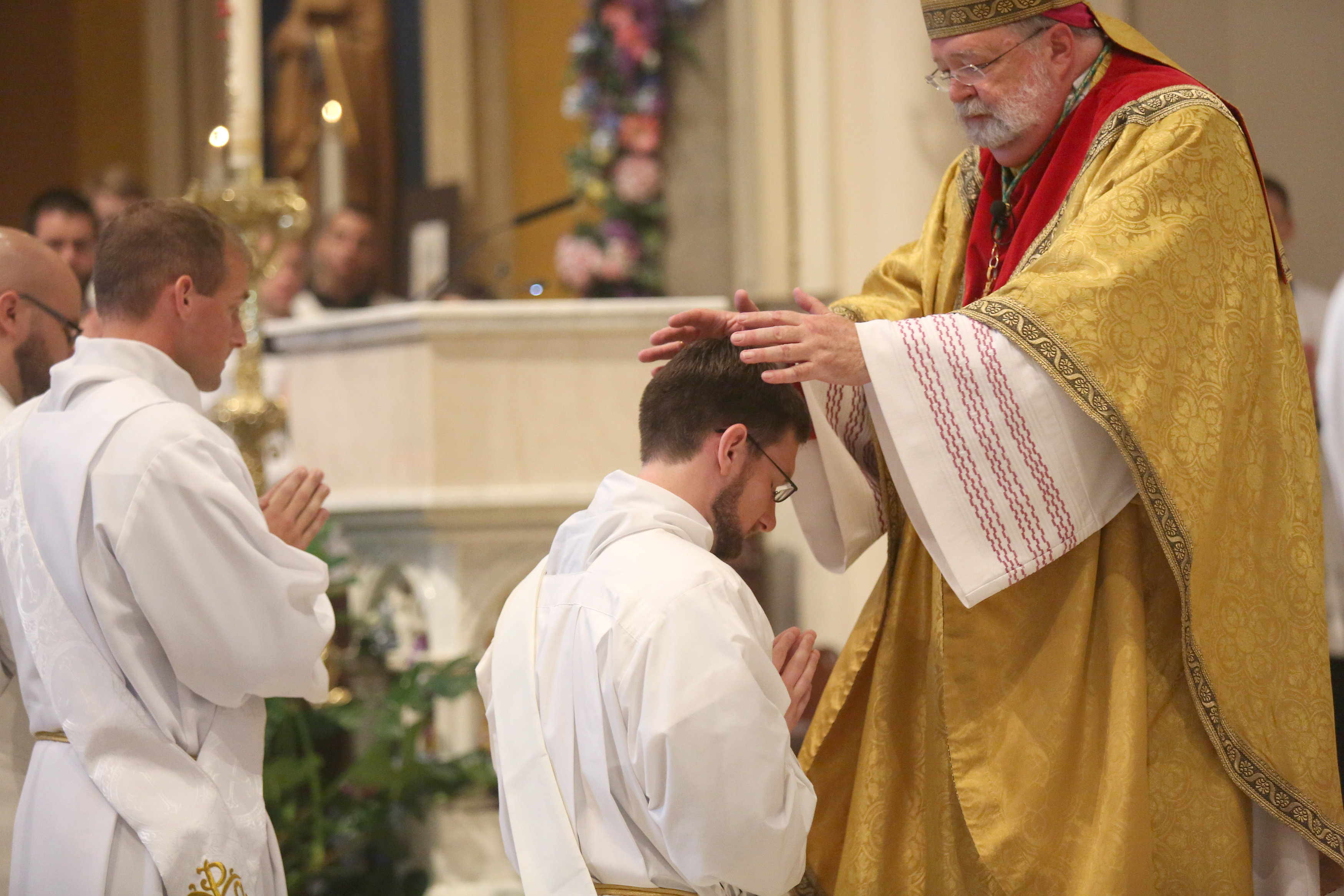The Lowest Place
Reflections on the readings for the Twenty-Second Sunday in Ordinary Time, Year C.
Another form of this reflection originally appeared in the Catholic Post.
“Blessed indeed will you be because of their inability to repay you.” Jesus’ saying in the Gospel goes against the grain of common sense. Why would I be blessed because someone is unable to repay me? Our society seems to flourish on the law of reciprocity: make connections, do favors for people, and be kind to them, then it will come back to you in time. “Go to other people’s funerals so that they will go to yours.”

But this law of reciprocity causes jealousy and friction in relationships: If I do something for another, I feel they owe me, or if I compliment another I expect a compliment back. We begin to suspect the purity of others’ motives and wonder if they’re just being nice because they want something. Even worse, this attitude obscures the free, disinterested charity of God, making it hard to look at a crucifix and truly understand: he did that for me, and I did nothing to earn it. Christ stretched open his hands and let his enemies drive nails through them so that I could have the free gift of life.
We are children of a God who is merciful. He “makes his sun rise on the bad and the good, and causes rain to fall on the just and the unjust” (Matthew 5:45). He gives without seeking repayment and he loved us “while we were still sinners” (Romans 5:8). When a noble person takes a lower place, it shows his nobility. But when a small and petty person tries to take a higher place, it shines a light on their smallness and pettiness.
So when God chose to prove to us that his very identity is self-giving love (1 John 4:8), he went down to the lowest place, becoming man and choosing not to “grasp” at his divinity (Philippians 2:6). He showed us that he was so strong and noble that he didn’t need to display his strength and nobility.

Image credit: The Catholic Post
There is a certain “holy pride” in being a child of God. We should act with the royal dignity that belongs to us, and be confident that Christ has raised our humanity to the highest place and seated us on a throne (Ephesians 2:6). But, because we are so noble, we ought to willingly take the lowest places like Jesus. We ought to honor others in our conversations before speaking about ourselves, yield to others in arguments where the only thing at stake is our pride, and quickly forgive those who offend us. “In humility, count others as better than yourselves” (Philippians 2:3).
This is only possible with the grace that Jesus won for us on the cross. He “descended into the lower regions of the earth” (Ephesians 4:9) and he descends onto our altars every day in order to raise up our fallen, self-centered nature. The Son of God, who took the lowest possible place for us, can never be outdone in humble service of others. Like a servant, he washed our feet from the grime of sin. And when we humble ourselves with him, we are transformed. We let go of jealousy and petty grudges and gain a deep peace in our lives. Our motives become purer and we focus on how we can better serve others rather than on what is owed to us. Little by little, our selfishness and sin are quenched and our past sins are atoned for, as we hear in the first reading: “Water quenches a flaming fire, and alms atone for sins.”
Each vocation is a way of lowering oneself, not out of self-condemnation, but because we are imitating Christ on the cross. In choosing to serve others through our vocations and treat them as more important than ourselves, we unconsciously highlight our own dignity as children of God. We also prepare for the times in our vocations when we will have to humbly defer to others, and we can choose to do so without complaining or holding a grudge. Spouses must often defer to each other, or at least reach for compromises. At the very least, they have to have the humility of admitting that the way they are accustomed to doing things like raising children might not be the only right way. Religious men and women are under the direction of their superior and they follow the charisms and apostolates of their order. This frees them to say “no” to certain things, including their own plans, in order to say a greater “yes” to God’s will as revealed through their spirituality and community. And priests will always find themselves in situations where deferring to others, even if we disagree with them, is the wisest and most charitable thing to do.

Taking the lower place in times of legitimate disagreement, or when one is due certain honors and respect, isn’t easy. And for an immature Christian, it’s impossible. But if we want to reign with Christ and be placed over even greater realms of responsibility, then we it’s important to take up this practice. One great way to do this is to pray the litany of humility, particularly after receiving the Eucharist, which is the greatest act of humility in the universe. Jesus, not content with the incredible act of the incarnation or his immensely generous self-gift on the cross, chooses to appear as bread and wine and enter into us. Meditating on this humility should move us to awe, and should make whatever small debasements and humiliations we have to suffer pale in comparison. And so as we approach Jesus in the Eucharist, confident that none of us deserve to be seated at this wedding feast, we can ask him for the humility to take the lowest seat, as well as the confidence to accept the throne he has prepared for us in heaven.
O Jesus! meek and humble of heart, Hear me.
From the desire of being esteemed, Deliver me, Jesus.
From the desire of being loved…
From the desire of being extolled …
From the desire of being honored …
From the desire of being praised …
From the desire of being preferred to others…
From the desire of being consulted …
From the desire of being approved …
From the fear of being humiliated …
From the fear of being despised…
From the fear of suffering rebukes …
From the fear of being calumniated …
From the fear of being forgotten …
From the fear of being ridiculed …
From the fear of being wronged …
From the fear of being suspected …
That others may be loved more than I, Jesus, grant me the grace to desire it.
That others may be esteemed more than I …
That, in the opinion of the world,
others may increase and I may decrease …
That others may be chosen and I set aside …
That others may be praised and I unnoticed …
That others may be preferred to me in everything…
That others may become holier than I, provided that I may become as holy as I should…

